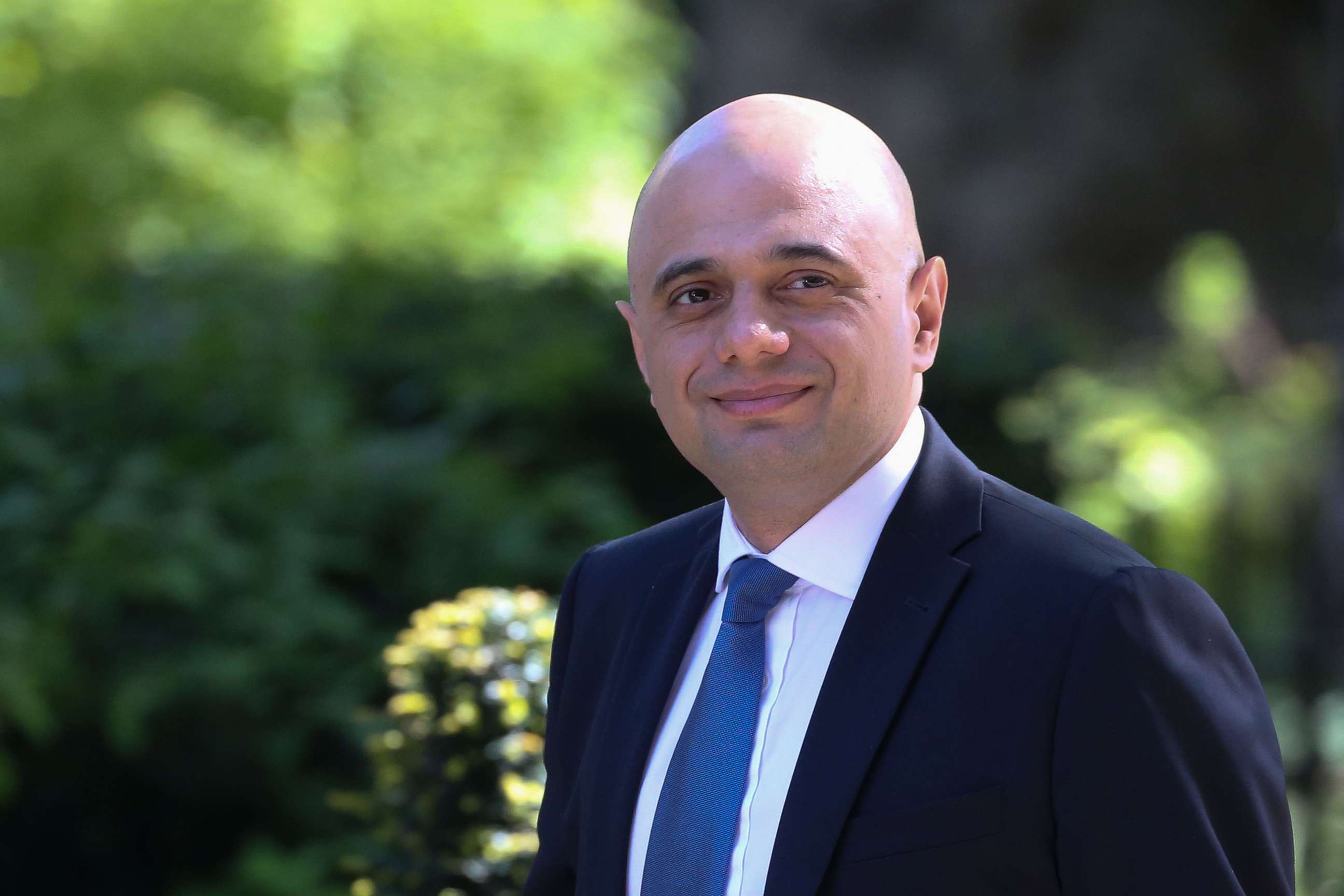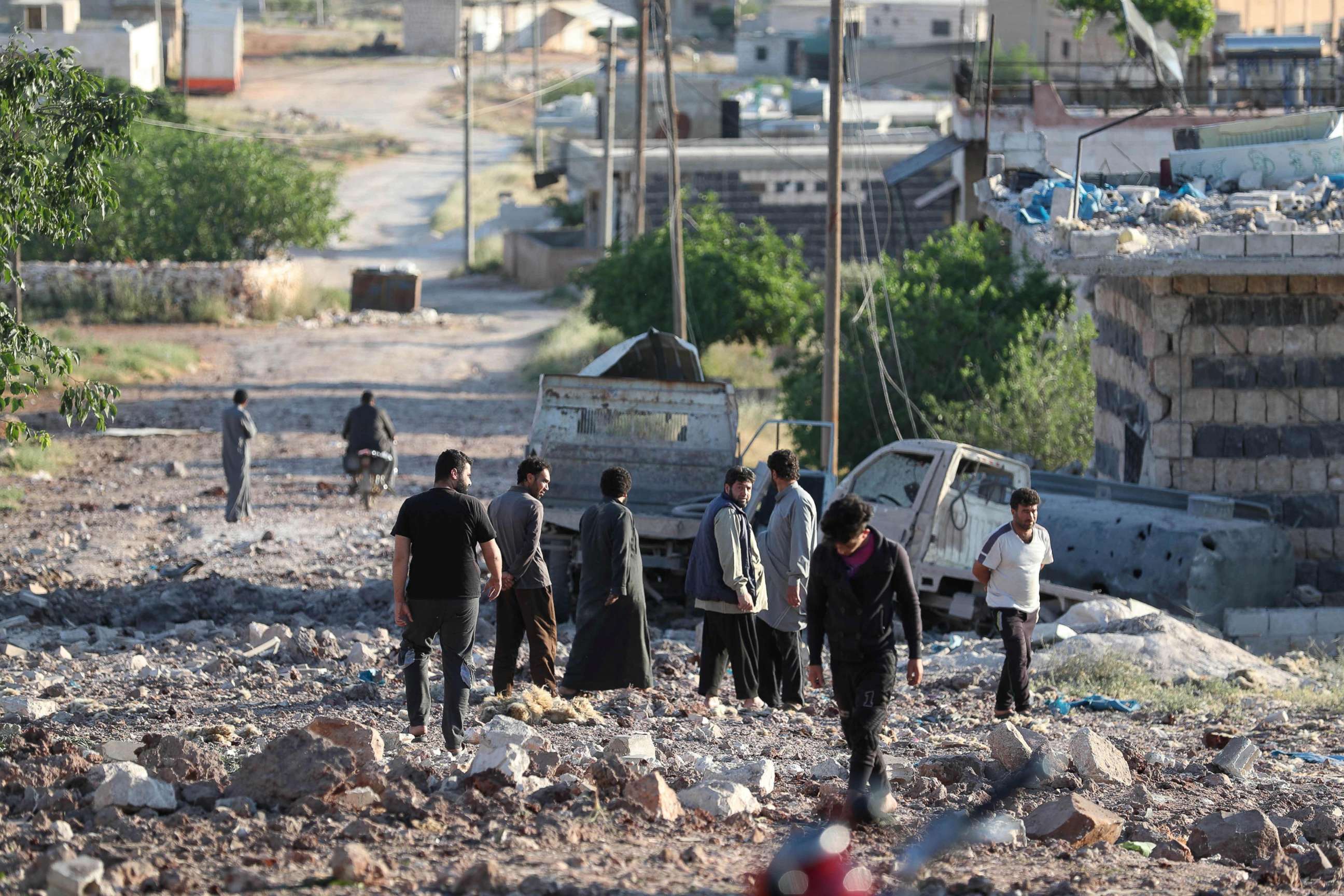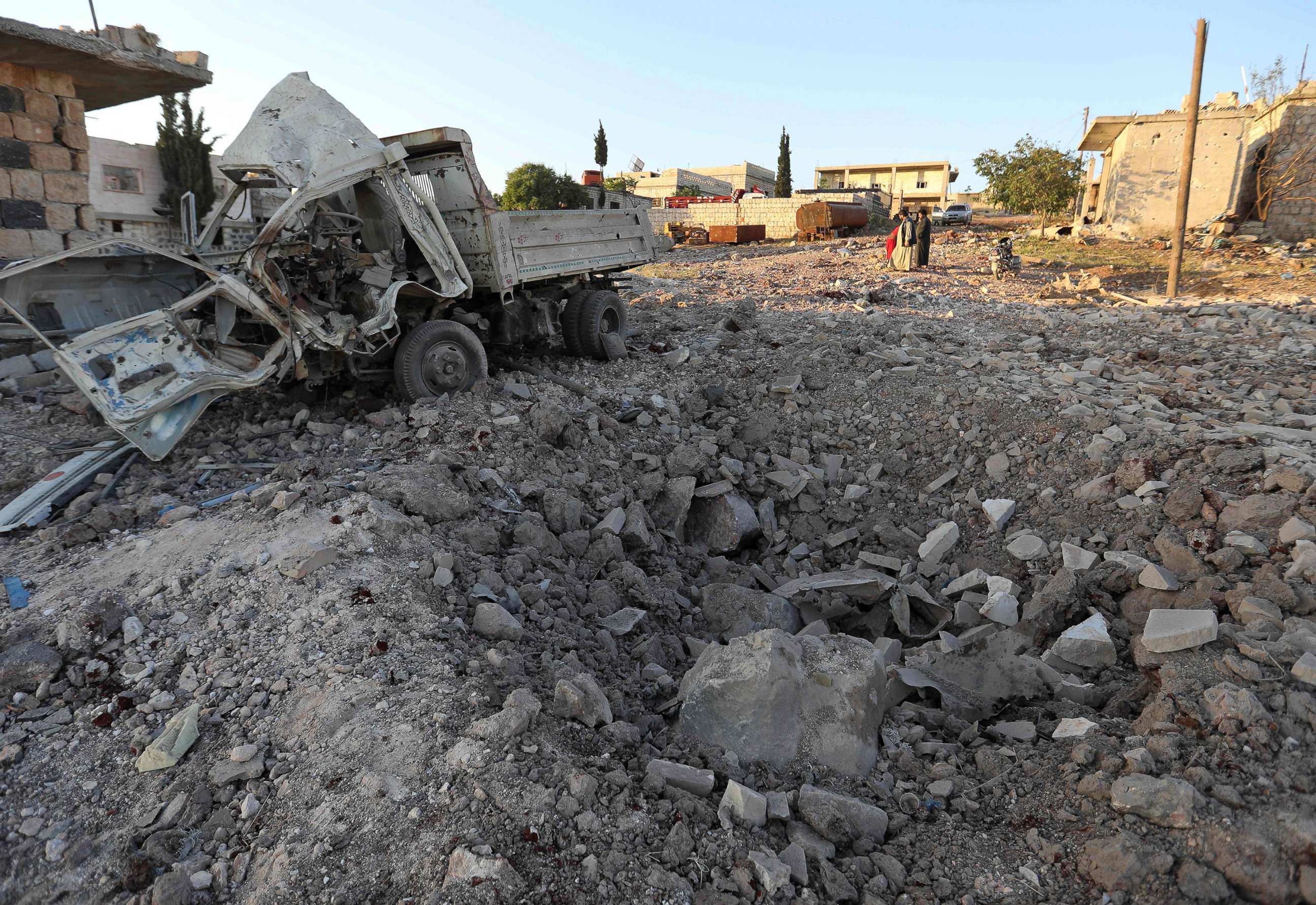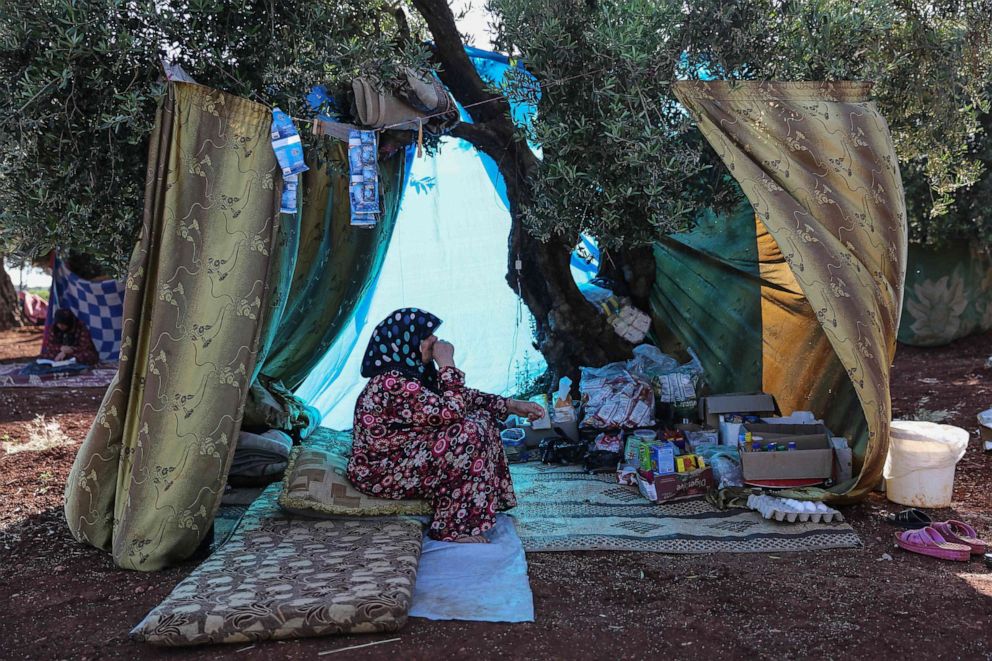UK bans nationals from entering or remaining in war-torn Syria
The Home Secretary cited the global terrorism threat in a speech Monday.
LONDON -- The U.K. government has announced plans to ban British nationals from entering or remaining in parts of war-torn Syria, utilizing powers granted by a controversial new counterterrorism law.
Home Secretary Sajid Javid, who oversees domestic security policy, cited the recent terrorist attacks in Sri Lanka and New Zealand, as well as the murder of a journalist in Northern Ireland, in a speech on Monday outlining his use of the 2019 Counter-Terrorism and Border Security Act to ban British nationals from Syria.

“Today I can announce that I’ve asked my officials to work closely with CT [Counter-Terrorism] policing and intelligence agencies to urgently review the case for exercising this power in relation to Syria, with a particular focus on Idlib and the Northeast,” said Javid. “So, anyone who is in these areas without a legitimate reason should be on notice.”
“I can also see that there may be a case in the future for considering designating parts of West Africa,” he added.”
The home secretary said that while ISIS, also known by the Arabic acronym Daesh, had been defeated on the ground in Syria and elsewhere, the “poisonous ideology remains” across borders.
“Of all the terrorist plots thwarted by the U.K. and our Western allies last year, 80% were planned by people inspired by the ideology of Daesh, but who had never actually been in contact with the so-called 'Caliphate,'” he said.
Over 900 people in the U.K. of “national security concern” have traveled to Syria to fight since the civil war began in 2011, according to the Home Office. Of those, around 20% were killed during the fighting, while 40% have returned to the country.
Syrian Kurdish forces declared victory over the ISIS in March after a years-long fight to reclaim territory that once belonged to the terror group.
However, fighting has recently intensified in Idlib, a city in northeastern Syria, as government forces backed by Russia seek to retake the last opposition-held stronghold, according to the New York Times.


The new move by the U.K. forbidding British nationals from from entering areas of conflict has been criticized by Liberty, a human rights charity, as “crude and draconian.” The organization has called on Javid to reconsider the law.

“Criminalizing the mere act of being in a particular place reflects an attempt to sidestep the basic principles of the criminal law, in circumstances where there is insufficient evidence to prosecute people for genuine terrorist activity,” Rosalind Comyn, Liberty's policy and campaigns officer, told ABC News.
“It risks criminalizing people visiting their families, as well as those conducting research or documenting human rights abuses. Worryingly, it may also sweep up vulnerable people -- including children -- who have been coerced into travelling, are unable to leave an area, or are simply unaware an area has been designated.”
Javid has been criticized before for his decisions as Home Secretary surrounding ISIS, particularly after he revoked the U.K. citizenship of 19-year-old ISIS bride Shamima Begum. Begum joined ISIS at the age of 15 in 2015, and was heavily pregnant when she was stripped of her British citizenship after she asked to return to the U.K. Her baby was born in March, and died shortly afterwards.




